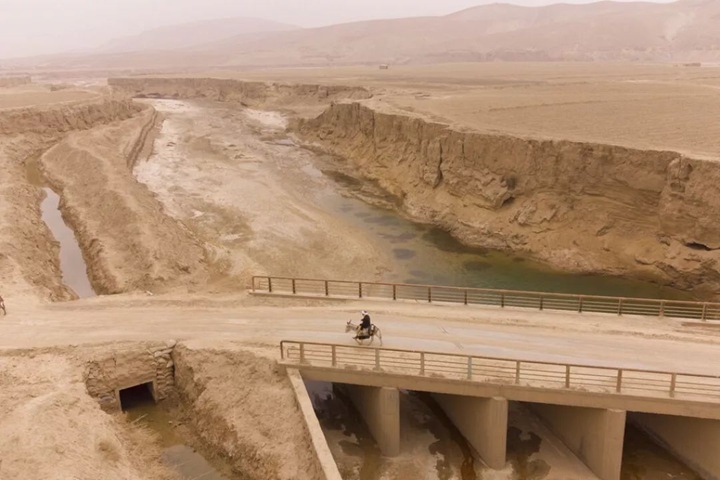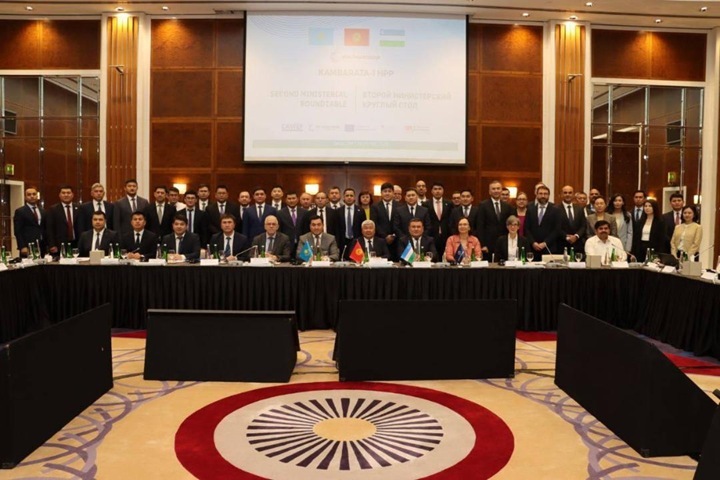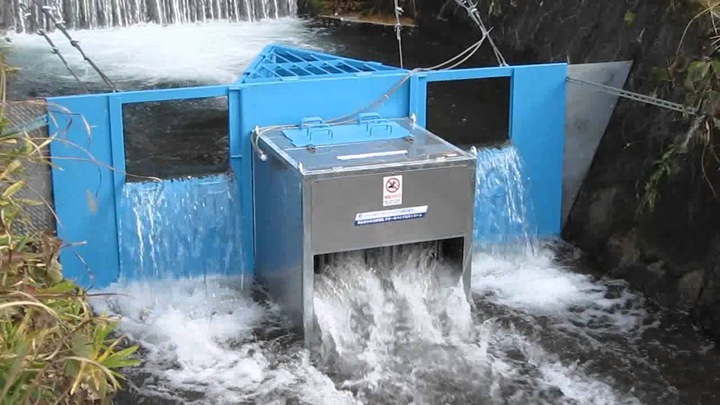Qosh-Tepa Canal in Afghanistan: the last nail in the coffin of the Aral Sea?
Afghanistan is rapidly building a 285-kilometer water canal to irrigate the northern regions of the country suffering from drought. The Central Asian States believe that decisions on transboundary water use should be taken collectively.

Afghanistan is rapidly building the Qosh-Tepa canal, a waterway designed to irrigate more than 500,000 hectares of arid northern regions of the country, for which 20-30% of the flow of the Amu Darya River will be redirected.
In addition to Afghanistan, the Amu Darya flows through Tajikistan, Uzbekistan and Turkmenistan, the latter two countries being downstream. These countries depend on the river that feeds their hydroelectric power plants and irrigates agricultural land.
Redirecting the river into a canal will destroy the water security of Central Asia, reducing the water supply of Uzbekistan by 15% and Turkmenistan by 80%, as well as negatively affect the level of employment and poverty, migration and cross—border conflicts.
At the same time, the authorities of two other Central Asian states — Kazakhstan and Kyrgyzstan — seem less concerned about this issue, since the Amu Darya does not pass through their territory.
However, experts warn that if Uzbekistan and Turkmenistan receive less water from the Amu Darya, they may begin to take more water from the Syr Darya, upstream of which they are located, to compensate for losses.
“These changes in the water balance will inevitably affect our country. The flow of the Syrdarya River from Uzbekistan to Kazakhstan may decrease by 30-40%,” says Azamatkhan Amirtayev, leader of the Kazakh Green Baitak Party.
The Amu Darya and Syr Darya rivers together feed the ecologically devastated Aral Sea.
“Qosh-Tepa will put an end to the Aral Sea basin, it will be the last nail in the coffin,” says Bulat Yessekin, founder and coordinator of the Central Asian Platform for Water Resources Management and Climate Change.
In order to preserve the ecosystem, he invited the Central Asian states to share their energy and food resources with Afghanistan.
“They are building a canal to feed themselves. It’s our fault they don’t have water. We have the means to solve this problem, if only we take it seriously,” Yesekin stressed.
Other experts at the recent conference “Water Security and Transboundary Water Use” agreed that the construction of the Qosh-Tepa canal would undermine all the work on the restoration of the Aral Sea.
Central Asia is already suffering from water scarcity due to a changing climate and poor management of water resources, and a new problem could cause irreparable damage to the country’s ecosystems.
Regulation of water use
Water use in Central Asia is regulated by the 1992 Agreement on the Transboundary Use and Protection of Water resources, which is a descendant of the Soviet Protocol 566. The countries also comply with the UN Convention on the Protection and Use of Transboundary Watercourses and International Lakes.
“The countries of Central Asia have managed to maintain relatively peaceful relations of cooperation, despite the continuing problems with the quality and quantity of water,” the UN Report on the state of the world’s water resources until 2024 says.
Afghanistan, however, is not part of these agreements, since the Taliban movement is not recognized by any international organization or State.
Despite this, the Central Asian countries are gradually improving relations with the regime. Kazakhstan and Kyrgyzstan have excluded the Taliban from the list of banned terrorist organizations, and Uzbekistan is actively establishing cooperation with its neighbor.
“We are interested in a stable and equitable distribution of water resources, taking into account the needs of ecosystems and the socio-economic development of regions,” the Ministry of Water Resources and Irrigation of Kazakhstan said.
Afghanistan has demonstrated its readiness to discuss the issue of sharing water resources, noting that its people have the same right to use them as other countries.
“We don’t see any problems in this regard. This is a very good opportunity for coordination and cooperation,” said Deputy Foreign Minister of Afghanistan Mohammad Naim Wardak.
If anyone has any problems, we are fully prepared to solve them.” Qosh-Tepa channel will not harm anyone.”
Kazakhstan believes that there is already a platform where these issues can be discussed.
“Considering that in 2024 Kazakhstan became the chairman of the International Fund for Saving the Aral Sea (IFAS), the Ministry considers it appropriate to resolve issues of regional water allocation, including Afghanistan, within IFAS, until the consent of all participating countries is obtained,” the Ministry of Water Resources said.
All sides agree that Afghanistan has the right to take water from the Amu Darya, but must do so in cooperation and agreement with its downstream neighbors.
Kabul should consider modern water-saving technologies to prevent unnecessary water losses, and Central Asia can share its experts.
Galiya Khasenkhanova (Euronews)
Original (in Russian): Канал Кош-Тепа в Афганистане: последний гвоздь в гроб Аральского моря?


